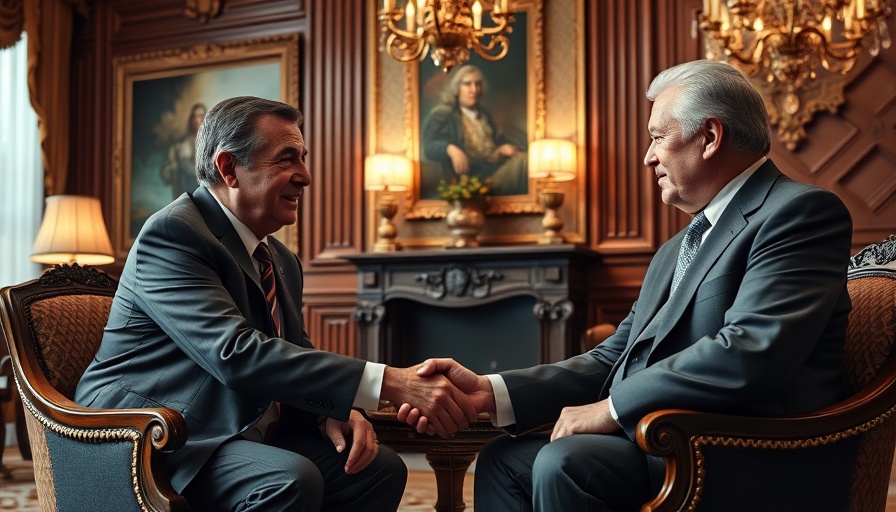
Tensions Rise Between the U.S. and South Africa
In a recent exchange that highlighted the delicate state of U.S.-South Africa relations, President Donald Trump met with South African President Cyril Ramaphosa at the White House. This meeting initially appeared as a diplomatic endeavor but rapidly transformed into a confrontation centered around controversial claims of widespread violence against white farmers in South Africa.
Trump's Accusations: Fact or Fiction?
During the Oval Office meeting, President Trump accused the South African government of failing to protect its white farmers, asserting that a "white genocide" was occurring. These claims stem from a narrative promoted by certain groups in the U.S. and South Africa regarding racial violence against white Afrikaners. However, such assertions have been vehemently rejected by the South African government and various international observers, who have classified them as exaggerated and unsupported by evidence.
A Controversial Demonstration
To bolster his argument, Trump dimmed the lights in the Oval Office to present video footage featuring a populist politician from South Africa performing a controversial anti-apartheid song. The song, which contains violent imagery, has been criticized for inciting division rather than promoting unity. This visual example, intended to lend weight to Trump's claims, exemplifies the confusion and tension surrounding discourse on race in South Africa.
The Historical Context of Racial Tensions
Racial dynamics in South Africa are deeply rooted in its apartheid history, a system of institutionalized racial segregation and discrimination that formally ended in the early 1990s. Despite significant progress since then, the legacy of apartheid lingers, impacting socio-economic conditions and racial relations. The connection between historical injustices and present-day tensions is critical to understanding the current narrative around land reform and violence against farmers of any race in the region.
Reactions from South Africa
President Ramaphosa and the South African government reacted strongly to Trump's remarks, asserting that the claims of genocide are unfounded and only serve to deepen racial divides. Their statements emphasized a commitment to addressing any issues surrounding farmer safety while firmly rejecting the notion that a systematic campaign against white farmers exists. The dialogue reflects broader concerns around how narratives can be weaponized in international relations, particularly when they involve sensitive topics like race and violence.
The Bigger Picture: Global Implications
This tense exchange is not just a bilateral issue but part of a larger global discourse on race, governance, and the manipulation of information. Observers noted that the conversation in the Oval Office underscores the significance of media narratives in shaping public perception and policy decisions. As misinformation can spark outrage and unrest, it is crucial for leaders to approach such discussions with factual integrity and a commitment to unity rather than division.
Conclusion: The Path Forward
Moving forward, the dialogue between the U.S. and South Africa has the potential to either foster understanding or exacerbate tensions. It is imperative that both nations work towards constructive conversations that address genuine concerns while promoting social cohesion. This incident serves as a reminder of the importance of informed and respectful discourse, especially when discussing complex issues of race and violence.
 Add Row
Add Row  Add
Add 




 Add Row
Add Row  Add
Add 

Write A Comment